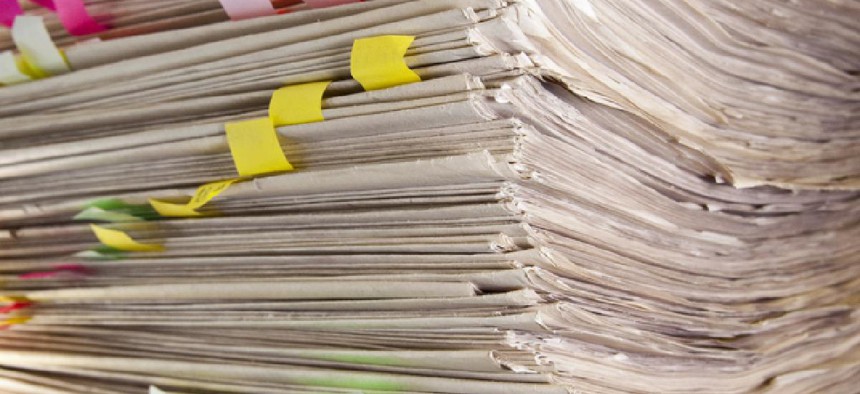
Image via Oleg Golovnev/Shutterstock.com
How to Beat Information Overload and Get Things Done
Two steps to overcome distraction and get focused on what you really want to achieve.
I’m finding that lately overwhelm is rampant. Whether it's checking email, going to meetings or using social media, the demands on our time are extreme and potentially endless. To combat this time assault, I’ve developed this two-part method:
Ask Yourself, Why?
Before you engage in any activity, always ask yourself questions such as:
- Why am I doing this activity?
- Why am I spending this much (or this little) time on it?
- Why would someone care about what I’m doing?
- Who does this work serve?
- Will this advance my organization's mission?
- How does this activity reflect on my personal brand?
- Does this activity energize me and focus me on my important goals?
These kind of questions work with anything from networking, deciding if you need to be in a meeting or even Twitter updates—basically if you can’t see a clear ROI on an activity, you might want to stop or reduce your time doing it. If you simply enjoy doing something, you can still do it on your personal time. But don’t waste time on tasks that produce no results.
For instance, when I worked exclusively as a freelance writer before becoming a time coach and trainer, I did not write a blog. I made this decision based on the fact that my clients were not interested in hiring me based on blogging. Instead, my clients cared more about seeing me face-to-face on a somewhat regular basis. At that time, it made more sense to spend a couple of hours a week visiting their offices rather than writing posts.
Time Block Everything
The mental state required to effectively process email or scan tweets is not the same as the one needed to write a cohesive report. One of the biggest ways to make writing or any project that requires a high level of mental concentration take FOOOREEEVER is to flit between the project and email or social media. You must block out distraction.
I’ve found it most effective to answer all of my email and do all my processing at the beginning of the day. Then I can take a little break to get a cup of coffee or stretch my legs and focus completely for a couple of hours on a major assignment such as an article. Once that’s done, I take a little break, maybe check email for 10 minutes, and then focus on the next important task.
To stick to your schedule and overcome distraction, try these techniques:
- If you’re a twitterer, decide when you will go on Twitter and for how long, then stop once you reach your limit.
- If your job requires lots of email correspondence, designate a certain time slot or at least number of hours you will spend emailing, then stick with it.
- If your job requires you to read lots of content and reports, collect them all in a single electronic or paper folder and then designate a certain amount of time each day or week to review it. Stop when you reach the limit.
With the onslaught of electronic demands on our time, the lie is that you will always benefit from more information, but that’s simply not true. By picking the best information, learning from it, and applying it, you will be far ahead of the people who fritter away their lives reading yet another Facebook update while accomplishing nothing.
Read Less, Do More
It will take time to develop the habit of focus when you’re used to falling for the endless lure of of mindless web browsing or email. But as you decide on what’s most important and set time limits, you’ll start to develop new habits and the ability to maximize the value of your time on and off the clock.
Image via Oleg Golovnev/Shutterstock.com







